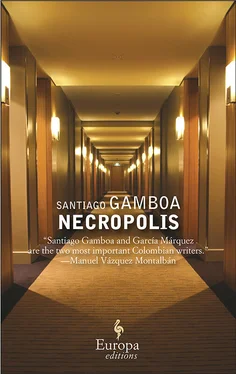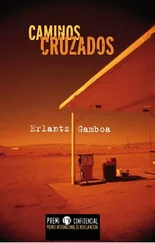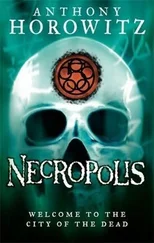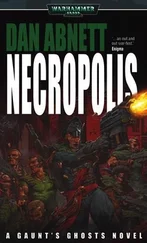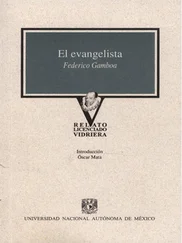It was distressing not knowing where the next blow would come from, like protecting yourself from a mosquito in the dark. We spoke to the police but they couldn’t do anything; they said they’d increase their patrols, tap our phones, have people followed. They didn’t do a thing and one day the attack came. A car bomb on the building in Armenia; it destroyed the first three floors and left nine people dead, innocent people who were just passing by. We met again and took the decision: part of the family would go to New York and Tel Aviv, and we brothers would stay in Armenia and fight. Reason was on our side, we thought, God would have to help us. I made inquiries and found out the names of some politicians who were friends of the paras. I summoned them to a restaurant and said to them, why are the paras treating us like this? don’t we pay taxes and create work? don’t we deserve respect? But the politicians said: you’re businessmen, hardworking and honest, you should support them; the paras are defending the businessmen and the hardworking families of this country. I said: we don’t need that kind of protection, we have to respect our history, haven’t you ever heard of the Holocaust? we can’t negotiate with murderers, we’re Jews. The politicians looked at us gravely and said, we’ll study the case and pass it on, of course all that comes at a price, but you can pay it, you’re wealthy; I said: aren’t you elected by the people? you already have salaries, that’s your income, why should I pay you? They looked at me in surprise and their expressions gradually began to decompose; first a soft laugh, then a noisy peal of laughter that distorted their faces, turned their cheeks red, inflamed their eyes. One of them said, you’re funny, you know, do all Jews have such a good sense of humor? You really are very funny, said another, wiping away his tears of laughter. They took a few seconds to recover their composure. Good, said the one who seemed to be their leader, now seriously, the day after tomorrow we’ll tell you how much our mediation is worth and then you can decide, but I can tell you right now that it’s advisable to accept because this country is becoming very unsafe, with all those guerrillas everywhere, cooperate with the country in which you’ve made money, show some solidarity. The other politicians stood up saying, yes, it’s highly advisable, give that to Colombia, be patriots even though you’re foreigners, don’t be such bastards. Before they went out, they threw a piece of paper on the table. We’ve left you the check, to accustom you to being friendly: a bottle of Buchanan’s and some meat snacks, you kept us waiting a long time; and six Absolut with tonic because the fat man is well-bred and only drinks vodka, not much for you, Mr. Kaplan. But I stood up and left without paying.
A week later, they asked for thirty million pesos. I didn’t even gather the family but said, we won’t pay a single peso, you have salaries, the State pays you. Oh, you’re a foreigner, you don’t understand, but I interrupted and said, no, señor, I’m not a foreigner, and I do understand, I’m not going to pay you a single peso, you or your bosses. The politicians said, oh, then you’ll have to face the consequences, and I replied, that’s what we plan to do, but you’ll also have to take the consequences. I was filled with rage, I had to pray to calm down; then I called my brother-in-law in Tel Aviv, and told him the moment had come; no problem, Moisés, he replied, I’ll send somebody. Six people arrived from Israel, bought weapons, and followed the trail from the last messenger all the way up to one of the bosses of Armenia. They grabbed him one night when he was out painting the town red with some girls from Cali, they took him out naked and left him lying in the center with a note that said: Beware of the Kaplans, get out of town, you have three days. I thought it would be the last thing I did in the country, when it was over I would go to New York, where I had quite a bit of capital invested. We put the business in the hands of administrators. Colombia was expelling us. We had to get our help from Israel, can you imagine? The one thing worse than losing your country is losing your dignity, and I said, we’re going to see this fight through to the end! Four days later, our people grabbed two of the politicians and said, you have a week to leave the Congress and the Senate, whether you like it or not, if not we’ll bring you down like rotten fruit.
Two days later, we gathered them together. They weren’t so proud now, they wanted to know if we were declaring war on them, but I said: you already declared it, being strong with the weak and weak with the strong. Another asked if the group that had threatened them was ours, and I said, you don’t deserve a reply, they’re soldiers of God, aren’t you believers? A third one tried to reconcile us: Señor Kaplan, we understand your case and we could intercede without charging you, but you have to assure us of your goodwill; I replied: we don’t want your understanding or your clemency, you had the chance and missed it. . Get out of here, you sons of bitches!
That evening, my brother and I left the country. I felt angry and very sad. God willing I can go back some day, I dream of the mountains of Quindío, the smell of the coffee plantations and the wet earth. From that moment I devoted myself first to reading biographies, and then to writing them.
He approached an orchid, sniffed it and said: hmm, it’s the smell of the country we’ve just been talking about. I moved my nose closer but could not smell anything. Then I asked him: and what happened to the politicians? He looked at me slyly and said, well, that’s another story, I’ll tell it the next time we meet, which I hope will be very soon. He walked to the gate of the garden, stopped, turned, and said: of course you know that tomorrow I give my talk, did you see it on the program? I hadn’t seen it, but I said, of course, Señor Kaplan, are you going to tell your story? No, he said. I’m going to tell a similar story.
On returning to the coffee shop, I saw Marta. Although she was talking on her cell phone, I assume to her newspaper, because she was taking notes, she signaled to me to come over. She hung up and said, hi, speak of the devil, I was just talking about you to the arts editor and we’re in luck, he doesn’t know you but he’s agreed to an article about you, his idea is for a long article that illustrates the current situation of midrange writers, the moderately successful ones compared with the bestsellers, what do you think? it would come out in the Saturday supplement as one of the items connected with the ICBM.
I thought about it, then said, are you sure that’s a literary subject? publishers would have much more to say on the subject, they’re the ones who classify their authors depending on their sales, why don’t you ask Ebenezer Lottmann, from Tiberias? I think that would make for a better article. She sat there for a moment, staring out at something in the garden, and said: O.K., I suggest another, the situation of the writer in Latin America, how about that? Oh, that’s been done to death, I said, but she retorted, you don’t think that in Iceland we spend our lives reading Latin American novels, do you? you may think it’s been done to death, but I have to think of my readers. I was not very convinced, so I said, and what does your editor think about that? She looked at me very gravely, looked through her notes and said: for him any subject is fine, provided it reflects the current situation of the committed writer. As I listened to her, I remembered the Icelandic writer Arnaldur Indridason, the author of Jar City , and asked her whether in Iceland, mystery novelists were committed to the depiction of reality? She nodded but did not speak. I prefer not to say anything in order not to influence you, what’s your opinion? I have opinions on what happens around me and I suppose that shows through in what I write, I said. Marta hesitated, wondering whether or not to take out her recorder, finally decided against it, and said, no, wait. . I know! It’ll be better if I do a article in a literary style, a piece of “new journalism” about the impossibility of interviewing a writer in the middle of a city under siege, how about that? It depends, I said, what’s the cause of that impossibility? is it the war or is it you? I don’t know, I hope to answer with the article. Do you want to start now? I said, and she said, not really, or maybe yes, but as an exercise, in fact we’ve already started, let me take a few notes.
Читать дальше
